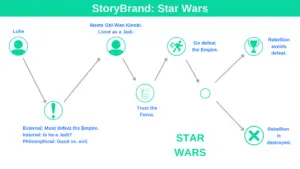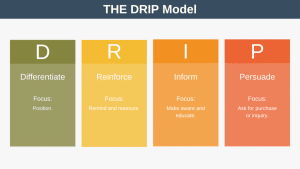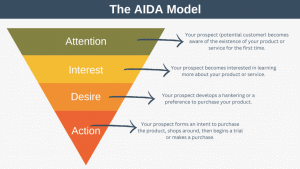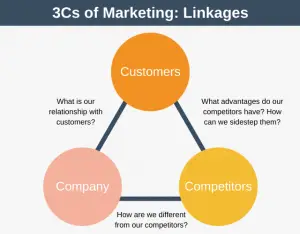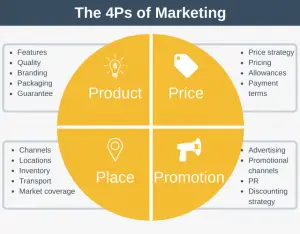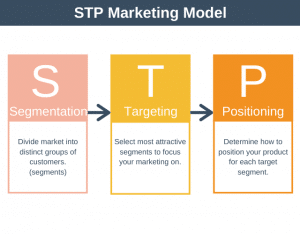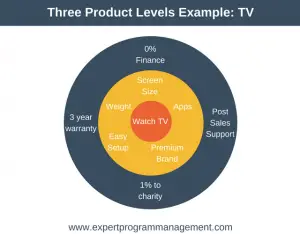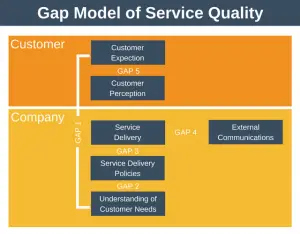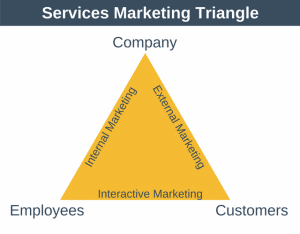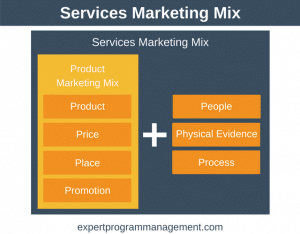What’s the difference between sales and marketing? Isn’t it the case that if you’re marketing to someone your selling? If so, does this make marketing the same as selling?
Many small businesses bundle both disciplines together in a singular Sales & Marketing department. This can make it even harder to understand the difference between sales and marketing.
Let’s clear this up by saying that sales and marketing are not the same. So, what is the difference?
Well, sales is a subset of marketing as shown in the diagram below:
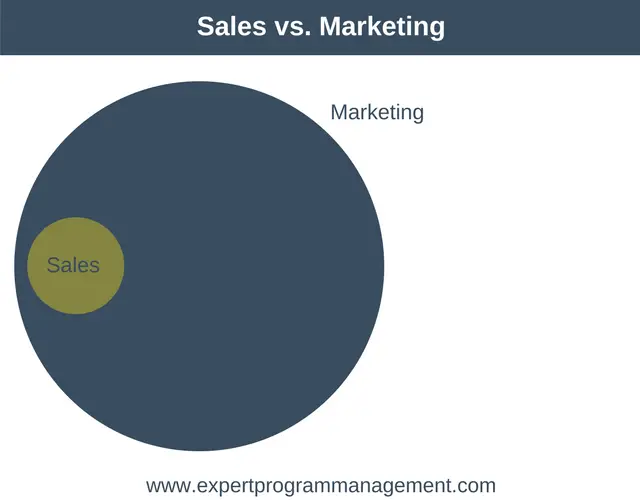
To clarify this further, another way to think about the difference between sales and marketing is to look at things from an end-to-end point of view:
- Marketing begins before sales. Marketing starts by identifying the needs of customers, for example, through market research. It then takes steps to fulfill these needs. This is done by shaping products so they match needs of customers. Once the products are ready, marketing is about promoting the product to take someone who has never heard of you through a series of steps. The steps begin when the person becomes aware of your company for the first time. Each subsequent step moves them closer to becoming a customer.
- At the point they are ready to become a customer a sales professional often takes over and closes the sale.
- But marketing doesn’t end there. It also includes maintaining the relationship after the sales professional has finished their job. It does this for two reasons. First, to encourage customers to become repeat customers. Second, to encourage customers to refer other customers, for example, through online reviews. These tasks that happen after a customer has bought the product go by the name of Customer Relationship Management (CRM).
It should be clear by now that marketing is so much more than sales. Its made up of brand management, market research, value creation, pricing strategies, CRM, advertising, and sales amongst others.
Difference between Sales and Marketing in a Table
If you’re still a little confused about the difference between sales and marketing then the following table should help. It clarifies how each discipline has a different focus around common themes.
| Audience | One to many. Many people are reached by a single marketing campaign. | One to one. Sales happen when one person helps another to get across the line and become a customer. |
| Strategy | Marketing tries to pull people towards the company or product. | Sales try to push people over the line. |
| Time Horizon | Marketing focuses on the long term. How can we grow our sales over the longer term? | Sales focus on the short term. They are judged on what they sell each day or week. |
| Targets | Marketing relies on sales to close deals. | Sales rely on marketing to generate leads. |
| Product | Have a range of products that they shape so they meet the needs of the customer. | Has a product that they need to sell. |
| Buying Cycle | Develops relationships with new customers and builds long-lasting relationships with existing ones. | Short-term relationships to get people to buy. |
| Promotion | Promotions are created to resonate with the target audience and anyone who has an influence on the target audience. | Promotions are generally discounts offered to close the deal. |
| Reputation | Marketing is concerned with building and maintaining the brand’s reputation. | Sales are concerned with relationships. It’s relationship driven. |
Summary
Sales and marketing are often mistaken for being the same discipline. It’s easy to see why this happens when you consider that many companies bundle both disciplines into a single Sales & Marketing department.
The key distinction between sales and marketing is that sales is a subset of marketing.
